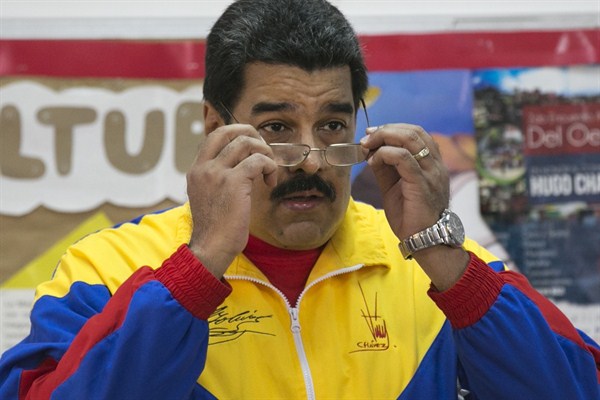On July 3, shortly before Venezuela’s Independence Day, U.S. Secretary of State John Kerry sent a positive message to the Venezuelan people heralding improved relations and looking forward to “further cooperation between our people and governments.” But just a month later, the State Department released a statement criticizing the government’s disqualification of several opposition candidates from scheduled parliamentary elections, suggesting the moves “clearly have the intention of complicating the ability of the opposition to run candidates for the legislative elections.”
In reaction, on Aug. 5, President Nicolas Maduro’s government vigorously rejected the American criticism, calling it interventionist. Yet three days later the Maduro government reiterated its desire to return an ambassador to Washington and improve bilateral relations.
While U.S.-Venezuela ties have looked troubled in recent years, even appearing destined for failure amid hostility and U.S. sanctions, this more recent back and forth marks a return to diplomacy. Indeed since early April, when top Kerry adviser Thomas Shannon visited Caracas just before the Summit of the Americas, the United States has consistently engaged Venezuela on issues of mutual interest. Since then Shannon visited Caracas once more, and on June 4 met with Venezuela’s National Assembly President Diosdado Cabello in Haiti.

